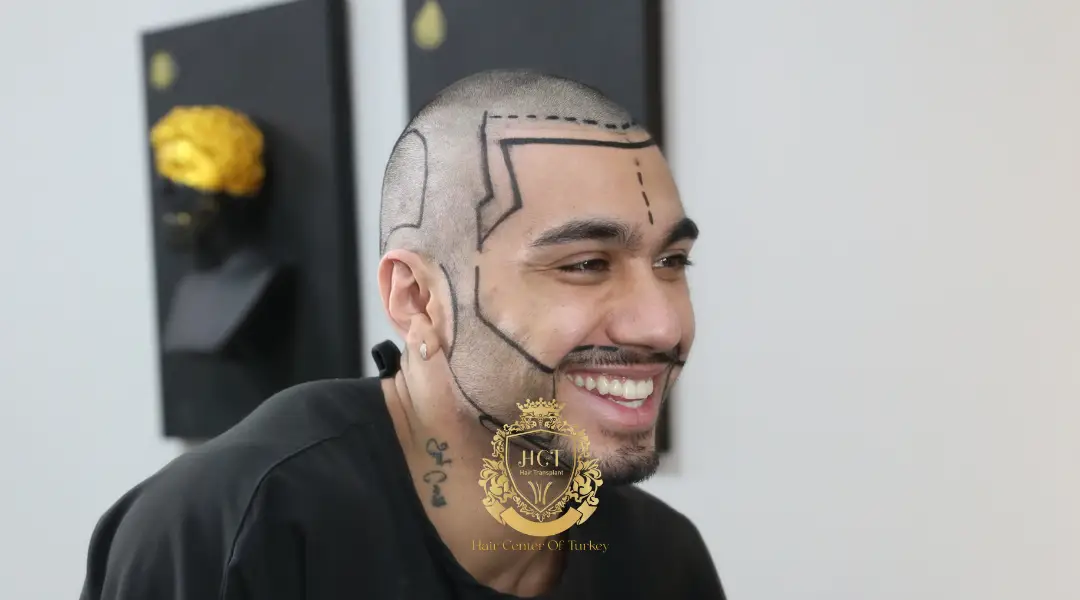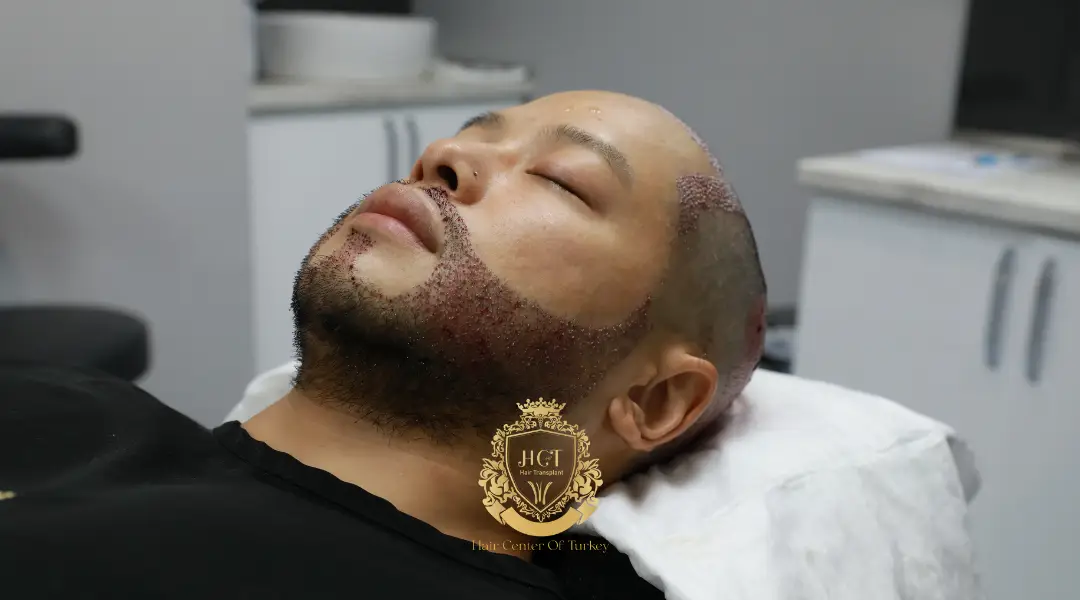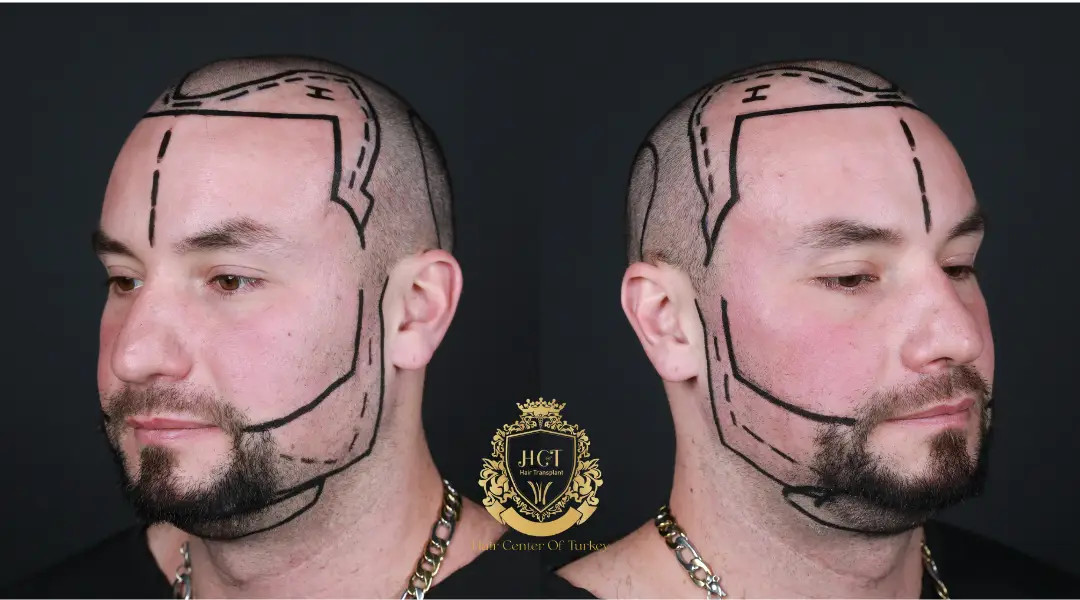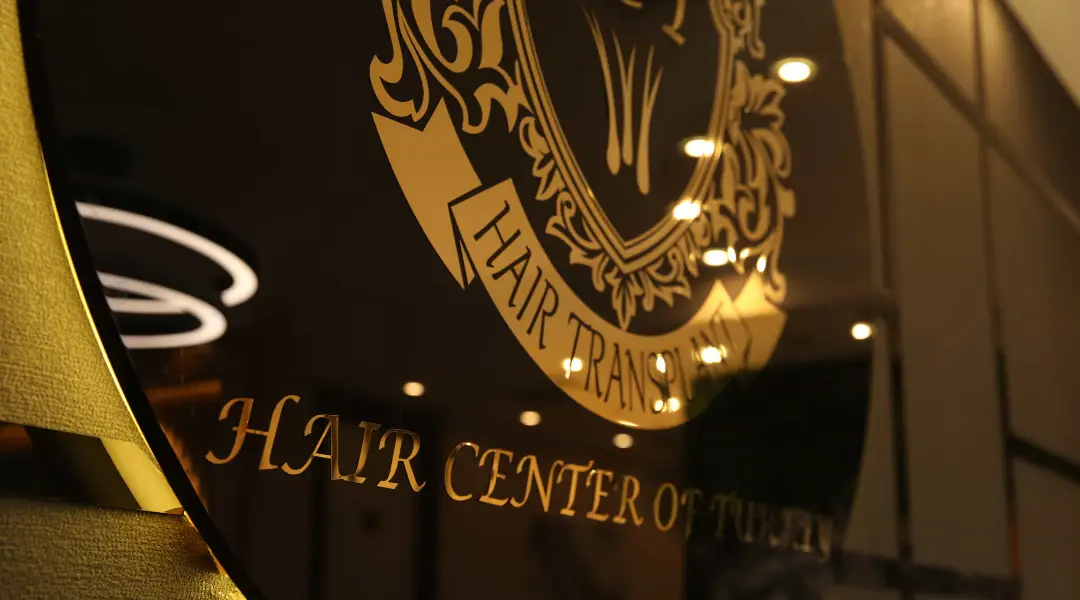
Beard Transplant In Turkey
A beard transplant in Turkey moves healthy hair follicles (usually from the back of the scalp) into patchy or thin beard areas. Most procedures take a single day under local anesthesia, then you’ll go through a short healing phase and a temporary shedding period before new growth starts. Final density is judged months later.
What A Beard Transplant In Turkey
A beard transplant is a surgical procedure that relocates individual hair follicles most often from the back of the scalp into the beard area. The goal is to build density, correct asymmetry, cover scars, or create a more defined shape.
Because beard hair is so visible up close, success depends on design and execution: graft direction, angle, spacing, and natural transitions from sideburns to cheeks and jawline.

Why Turkey Is A Popular Choice
Turkey (especially Istanbul) is a major destination for facial hair restoration because many clinics focus heavily on hair procedures, operate modern facilities, and offer coordinated medical-travel logistics.
The part that matters most is not the country it’s the team. A clinic that plans your beard properly, uses sterile workflows, and keeps the surgeon involved in critical steps is the clinic worth shortlisting.
FUE Vs DHI For Beard Transplants
FUE (Follicular Unit Extraction)
With FUE, follicles are extracted one by one, then placed into tiny recipient sites created in the beard area. FUE is widely used for larger coverage and typically heals without a linear scar.
DHI (Direct Hair Implantation)
With DHI, follicles are implanted using a pen-like implanter. This can offer tighter control over angle and placement, which can help in detail-heavy areas like the moustache edges and the cheek line.
Both methods can look natural when the plan is right. The more important variable is the surgeon’s design sense and the team’s handling of grafts.
What Procedure Day Usually Looks Like
Most beard transplant days follow a predictable flow:
- Consultation, beard design, and graft estimate
- Local anesthesia
- Donor extraction (commonly the back of the scalp)
- Graft sorting and hydration
- Implantation following your natural beard direction
- Aftercare briefing and take-home instructions
Expect a long day. Beard implantation is slow work when it’s done with care.
Beard Transplant Turkey Cost 2026
Pricing varies mainly by graft count, technique (FUE vs DHI), and what the package includes.
In 2026, many patients researching Turkey see total quotes roughly in the $1,900–$3,500 range for common package structures, while larger cases or premium services can push higher.
Some clinics publish broader market ranges that extend beyond that depending on coverage level and city.
What Can Change The Price
- Number of grafts needed (patch filling vs full beard build)
- Beard complexity (scars, previous procedures, very defined cheek line)
- Team involvement (who does extraction and implantation)
- Hotel/transfer/translation services included in a package
A low headline price can hide shortcuts. For facial work, precision matters more than speed.
Is A Beard Transplant In Turkey Safe?
When performed by a licensed medical team in a properly regulated, sterile clinical setting, beard transplantation is generally considered a low-risk procedure. The most common short-term issues are swelling, redness, and scabbing.
Safety comes down to basics: medical oversight, hygiene standards, a clear plan for complications, and realistic density goals.

Recovery Timeline
Most people describe the first week as manageable: mild swelling, redness, and scabbing are expected. Scabs usually clear as healing progresses, and the transplanted area settles.
A temporary shedding phase (“shock loss”) often begins around the second week and can last for several weeks. This is a normal part of the cycle, and new growth typically starts later.
Full cosmetic results are usually judged closer to the later months, not early on.
When Can You Shave After A Beard Transplant?
Most surgeons advise waiting until the grafts have anchored and the skin has healed. A commonly cited window is about 2–4 weeks, depending on healing speed and your surgeon’s protocol.
If scabs are still present or the skin is irritated, wait longer.
Who Is A Good Candidate?
You may be a good candidate if you:
- Have patchy growth from genetics or uneven density
- Want to improve symmetry or redefine the cheek/jaw outline
- Have scars in the beard area that can be camouflaged
- Have a healthy donor area and stable expectations
You may need extra medical evaluation if you have active skin conditions, uncontrolled chronic illness, or a history of problematic scarring.

How To Choose A Clinic Without Regret
Facial transplants reward careful clinic selection. Look for:
- The surgeon’s direct involvement in planning and critical steps
- Clear explanation of graft count, design logic, and angle control
- Real, consistent results shown in similar beard types to yours
- Written aftercare plan and reachable support post-op
- Transparent inclusions/exclusions in the package
Avoid clinics that rush decisions, push a one-size-fits-all graft number, or treat facial work like an assembly line.
Beard Transplant Packages In Turkey
Many clinics offer bundles that include hotel, transfers, medications, and follow-up guidance. Packages can make logistics easier, but only if medical standards stay the priority.
Treat “what’s included” as secondary. The result depends on the plan and the hands doing the work.

Frequently Asked Questions
Is a beard transplant permanent?
Transplanted follicles are typically taken from areas resistant to hair loss, so results are generally long-lasting. Your surgeon should explain realistic density and maintenance expectations.
How long does the procedure take?
Many beard transplant sessions take several hours in one day, often within a typical single-day surgical schedule.
Will it look natural?
It can look natural when grafts are placed with correct direction, angle, and spacing especially along the cheek line and at transition zones.
Can I travel home right after?
Many international patients travel shortly after the procedure, but timing depends on swelling, follow-up checks, and your clinic’s instructions.




